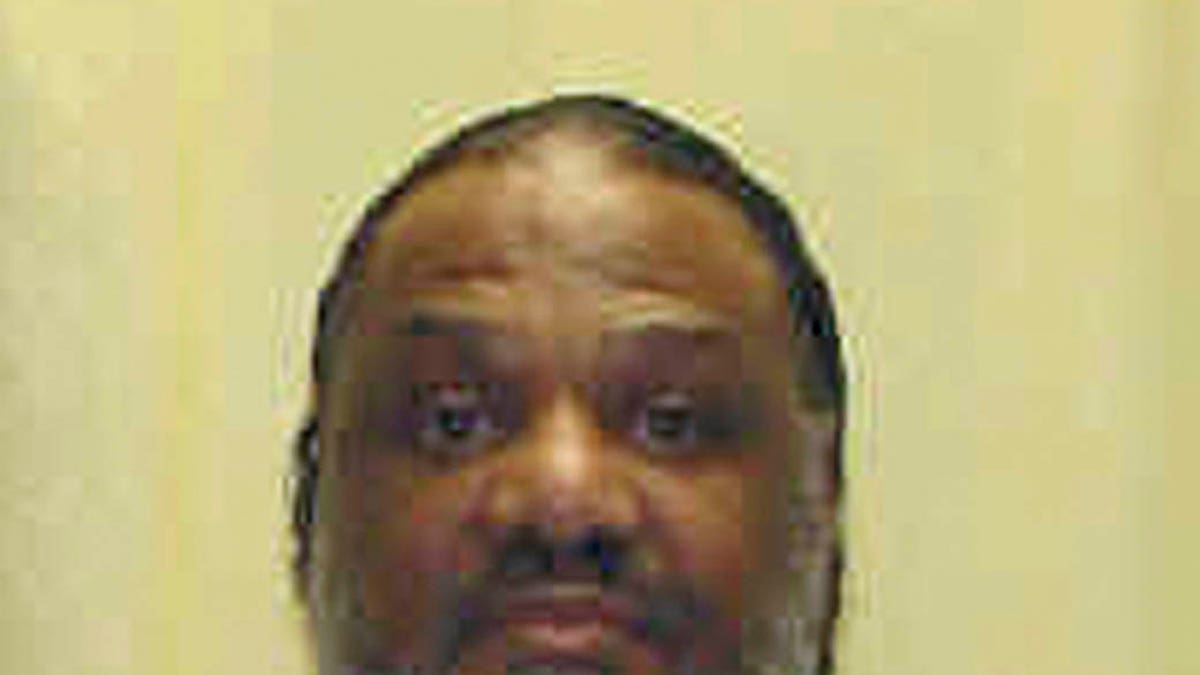
Reginald Brooks, scheduled to be put to death November 15, 2011, for fatally shooting his three sons while they slept in 1982, shortly after his wife filed for divorce. (AP /Ohio Department of Rehabilitation and Correction)
COLUMBUS, Ohio – Ohio was poised Tuesday to end a nearly six-month break in its use of capital punishment by executing a man who fatally shot his three sons while they slept in 1982, shortly after his wife filed for divorce.
State and federal courts have rejected attorneys' arguments that 66-year-old Reginald Brooks of East Cleveland is not mentally competent and that the government withheld relevant evidence that could have affected Brooks' case.
The Ohio Supreme Court on Monday rejected Brooks' request to halt the execution, and he had appeals pending in the U.S. Supreme Court. Meanwhile, he visited with his brother, clergy and lawyers and was served the special dinner he requested, including lasagna, garlic bread, ice cream, chocolate cake, root beer and snacks, prisons spokesman Carlo LoParo said.
The defense contends Brooks is a paranoid schizophrenic who suffered from mental illness long before he shot his 11-, 15- and 17-year-old sons in the head as they slept at their East Cleveland home on a Saturday morning. The defense says Brooks believed his co-workers and wife were poisoning him and that he maintains his innocence, offering conspiracy theories about the killings that involve police, his relatives and a look-alike.
Prosecutors acknowledge Brooks is mentally ill but dispute the notions that it caused the murders or makes him incompetent. They say he planned merciless killings, bought a revolver two weeks in advance, confirmed he'd be home alone with the boys, targeted them when they wouldn't resist and fled on a bus with a suitcase containing a birth certificate and personal items that could help him start a new life.
"It is a travesty that Reginald Brooks has lived so long on death row after cruelly shooting his three boys to death," Cuyahoga County Prosecutor Bill Mason said in a statement Monday.
Prosecutors say Brooks' insistence that he's innocent is a sign that he knows his rights, not that he's delusional.
Brooks was found competent for trial, and a three-judge panel convicted him.
Defense attorneys have argued that prosecutors withheld information that would have supported a mental health defense. Former Judge Harry Hanna, one of the three on the panel, told the Ohio Parole Board he would not have voted for the death penalty if he'd had information from police reports that were provided to the defense more recently.
Brooks declined to be interviewed by the parole board.
The board recommended that Gov. John Kasich deny clemency, and he did. Kasich previously granted clemency to two death row inmates and postponed two other executions as a federal judge weighed objections to Ohio's execution policy.
U.S. District Court Judge Gregory Frost denied a delay for Brooks last week and ruled in favor of Ohio's execution rules, saying the state addressed his concerns about the process.
Beverly Brooks, who found her sons dead in bed when she returned from work, told the parole board she believes the killings were an act of revenge for her divorce filing, not the result of mental illness, and she supports the execution. She is among those scheduled to witness it.
Reginald Brooks was taken Monday to the prison in Lucasville, where the execution would happen. He would be the oldest person put to death since Ohio resumed executions in 1999.

